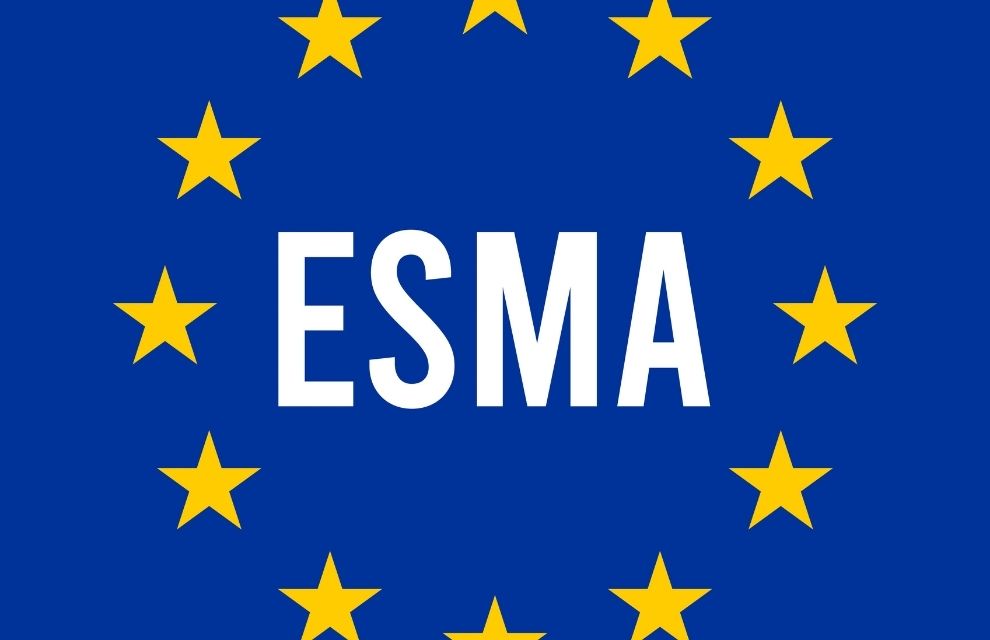ESMA launches consultation on anti-procyclicality margin measures for CCPs
27 January 2022 EU
 Image: AdobeStock/Ricochet64
Image: AdobeStock/Ricochet64
The European Securities and Markets Authority (ESMA) has released a consultation paper as the foundation for a review of EMIR requirements on anti-procyclicality margin measures for central counterparties.
With the publication of this paper, the EU securities markets regulator will open a consultation process on anti-procyclicality (APC) provisions of the European Market Infrastructure Regulation (EMIR).
Stakeholders will be asked to comment on a potential review of regulatory technical standards (RTS), with the intention of harmonising the existing APC margin requirements for CCPs and other specific anti-procyclicality tools.
ESMA’s data has demonstrated that EU CCPs performed well during the early stages of the COVID-19 crisis, says a statement from the markets authority.
However, a sharp rise in initial margin has prompted concerns that some of these increases “acted in a procyclical manner”, potentially triggering or amplifying liquidity stress in other areas of the financial system.
Commenting on the consultation paper, Nicoletta Giusto, an independent member of the CCP supervisory committee, says: “The turmoil in global markets following the onset of the COVID-19 pandemic in 2020 has been a live test of the operational resilience of CCPs and the adequacy of their regulatory and supervisory framework.
“This has prompted us to re-examine our anti-procyclicality tools.”
Giusto explains that the consultation paper outlines proposed amendments to the EMIR RTS designed to further harmonise CCP policies on margin changes and the use of APC tools across the EU.
“The proposals result from in-depth research and stakeholder engagement and we believe that, if implemented, they will strengthen the resilience of the EU financial system as a whole,” adds Giusto.
Stakeholders are asked to provide their responses to the consultation paper before a 31 March 2022 deadline.
ESMA has scheduled a public hearing to review these issues on 17 March 2022.
With the publication of this paper, the EU securities markets regulator will open a consultation process on anti-procyclicality (APC) provisions of the European Market Infrastructure Regulation (EMIR).
Stakeholders will be asked to comment on a potential review of regulatory technical standards (RTS), with the intention of harmonising the existing APC margin requirements for CCPs and other specific anti-procyclicality tools.
ESMA’s data has demonstrated that EU CCPs performed well during the early stages of the COVID-19 crisis, says a statement from the markets authority.
However, a sharp rise in initial margin has prompted concerns that some of these increases “acted in a procyclical manner”, potentially triggering or amplifying liquidity stress in other areas of the financial system.
Commenting on the consultation paper, Nicoletta Giusto, an independent member of the CCP supervisory committee, says: “The turmoil in global markets following the onset of the COVID-19 pandemic in 2020 has been a live test of the operational resilience of CCPs and the adequacy of their regulatory and supervisory framework.
“This has prompted us to re-examine our anti-procyclicality tools.”
Giusto explains that the consultation paper outlines proposed amendments to the EMIR RTS designed to further harmonise CCP policies on margin changes and the use of APC tools across the EU.
“The proposals result from in-depth research and stakeholder engagement and we believe that, if implemented, they will strengthen the resilience of the EU financial system as a whole,” adds Giusto.
Stakeholders are asked to provide their responses to the consultation paper before a 31 March 2022 deadline.
ESMA has scheduled a public hearing to review these issues on 17 March 2022.
NO FEE, NO RISK
100% ON RETURNS If you invest in only one securities finance news source this year, make sure it is your free subscription to Securities Finance Times
100% ON RETURNS If you invest in only one securities finance news source this year, make sure it is your free subscription to Securities Finance Times



